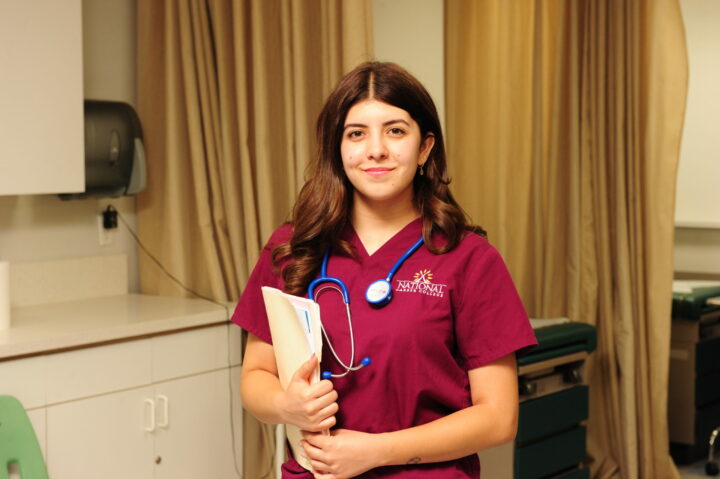If you're looking for a career that is both challenging and rewarding, consider becoming a medical assistant. Medical assistants are in high demand and play an essential role in medical offices, clinics, and hospitals. Most medical assistants are tasked with the responsibility of performing both administrative and clinical tasks to make medical procedures run smoother.
What Is a Medical Assistant?
Medical assistants are responsible for a variety of tasks in a healthcare setting. They may have a designated role, such as handling administrative duties or performing clinical tasks, or they may be responsible for a variety of both administrative and clinical duties. Medical assistants are essential in ensuring that medical procedures run smoothly and that patients receive the best possible care.
What Does a Medical Assistant Do?
Medical Assistant Job Description
Medical assistants typically work between administrative and clinical tasks. As a medical assistant, you could be expected to perform front office medical assistant duties such as scheduling appointments for patients or collecting patient information. Alternatively, back office medical assistant duties involve handling more hands-on tasks such as sterilizing medical instruments or taking vital signs.
Medical Assistants' Administrative Duties
- Medical assistants' administrative responsibilities are essential in ensuring that medical procedures run smoothly. This allows doctors and nurses to focus on providing care to patients.
- Medical assistant administrative duties are an important part of the role and help to ensure that patients receive the best possible care. Some examples of these duties are:
- Scheduling patient appointments
- Recording and updating patient medical records and medical histories
- Patient billing, collection, and bookkeeping
- Medical coding and insurance registration
Medical Assistants’ Clinical Duties
Clinical duties are an important part of a medical assistant's role and involve tasks such as sterilizing medical instruments or taking vital signs. Clinical medical assistants are responsible for a variety of clinical tasks and work closely with doctors and nurses to provide patients with the care they need. Some examples of clinical duties are:
- Assisting Doctors and physicians with patient examination
- Monitoring and measuring patients’ vital signs
- Taking blood samples and preparing them for basic laboratory tests
- Provision of medication and injections (under the direction of a physician)
These duties may vary by medical facility or between states. As an example, the Medical Board of California (MBC) sets the standards for what procedures medical assistants can perform within the state.
What Are the Duties of a Medical Assistant in California?
It is the role of the medical assistant to provide basic support and assistance to the physician. Medical assistants are unlicensed, and may only perform basic administrative, clerical and technical supportive services as permitted by law.
In California, the term "technical support service" is used by the Medical Board of California to describe clinical work done by medical assistants. Technical support services refer to the duties that a medical assistant is allowed to perform under specific authorization from a supervising physician, podiatrist, physician assistant, nurse practitioner, or nurse midwife.
Medical assistants are authorized to provide a variety of basic supportive services to patients in a physician's office. These services must be within the medical assistant's scope of training and may include:
- applying and removing bandages and dressings
- removing sutures
- preparing patients for examinations
- shaving and disinfecting treatment sites
- handing patients properly-labeled and pre-packaged prescriptions drugs (excluding controlled substances)
Medical assistants are certified; however, they are not licensed. An unlicensed person may not diagnose, treat, or perform any task that is invasive or requires assessment. It is not legal to use medical assistants to replace highly trained, licensed professionals. Medical assistants are not allowed to perform the following procedures:
- placing the needle or starting and disconnecting the infusion tube of an IV.
- administering medications or injections into the IV line.
- charting the pupillary responses.
- inserting a urine catheter.
- independently performing telephone triage.
- injecting collagen.
- Use lasers to remove hair, wrinkles, scars, moles, or other blemishes.
- administering chemotherapy.
Becoming a medical assistant is a rewarding career choice that allows you to help others and make a difference in their lives. If you are looking for a challenging and rewarding medical career, then becoming a medical assistant may be the perfect choice for you. The medical assisting profession is a great way to get started in the medical field.
National Career College’s Medical Assistant Training Program
If you're looking to start a career in the medical field, National Career College's Medical Assistant Training Program is the perfect place for you. Our medical assistant education program is accredited by the Accrediting Bureau of Health Education Schools (ABHES) and provides students with the skills and knowledge they need to work in a medical office.
We focus on individualized instruction and small class sizes, so you can be sure that you'll get the attention you need to succeed. Plus, our Medical Assisting Program prepares students to become certified medical assistants.
So what are you waiting for? Contact us today to learn more about National Career College's Medical Assistant Training Program!

